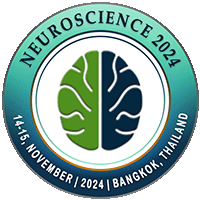
Wangdo Kim
Universidad de Ingenieria y Tecnologia- UTEC, PeruTitle: Psychological theory to address the surgical design concept
Abstract
Surgical design in personalized medicine is often based on native anatomy, which may not accurately reflect the interaction between native musculoskeletal tissues and biomechanical artifacts. To overcome this problem, researchers have developed alternative methods based on affordance-based design. The design process can be viewed in terms of action possibilities provided by the (biological) environment. Here, we use the affordance-based approach to address possibilities for action offered by biomechanical artifacts. In anterior crucial ligament (ACL) reconstruction, the design goal is to avoid ligament impingement while optimizing the placement of the tibial tunnel. Although in the current rationale for tibial tunnel placement roof impingement is minimized to avoid a negative affordance, we show that tibial tunnel placement can rather aim to constrain the target bounds with respect to a positive affordance. We describe the steps for identifying the measurable invariants and provide a mathematical framework for the surgery affordances within the knee.
Biography
Wangdo Kim’s original training was in mechanical engineering; he has a BSc from Seoul National University and a Ph.D. from Lehigh University, Bethlehem, PA, USA. He has been a researcher at Technical University of Lisbon, Biomechanics Laboratory, Portland State University, Associate Professor Nanyang Technological University, Singapore. He is the author of Proprioception, Knee Surgery - Reconstruction and Replacement, and Research Trends and Challenges in Medical Science, among other books. His work has appeared in bicycling magazine, biomechanics, Ecological Psychology, Golf Science, Yoga and Physiotherapy, and Sports engineering.

